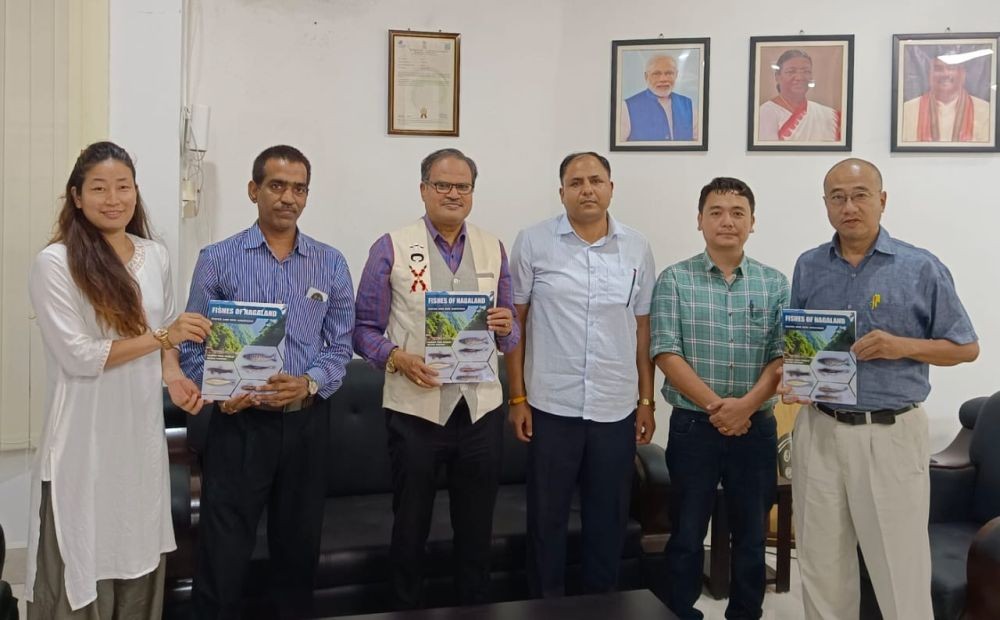Nagaland University Vice-Chancellor Prof Jagadish K. Patnaik along with authors Dr Pranay Punj Pankaj and Rejuba Pongen, and faculty members Prof Bendang Ao, Prof Ranjit Kumar and Dr Lobeno Mozhui releasing the book “Fishes of Nagaland: Status and New Additions” at Lumami on September 19.

LUMAMI, SEPTEMBER 24 (MExN): Nagaland University Vice-Chancellor Prof Jagadish K. Patnaik on September 19 released a new book titled “Fishes of Nagaland: Status and New Additions” at the university’s Lumami campus.
The comprehensive volume has been jointly authored by Dr Pranay Punj Pankaj, Associate Professor at Nagaland University, and Rejuba Pongen, Assistant Professor at Fazl Ali College, Mokokchung. Published by Academic Publishers & Distributors, Lucknow, the book catalogues the freshwater fish species found in Nagaland and aims to serve as a resource for researchers, conservationists and policymakers.
The release programme was attended by Prof Bendang Ao, Director, RDC, Prof Ranjit Kumar, Head of the Department of Zoology, and Dr Lobeno Mozhui of the Department of Zoology, Nagaland University.
Rivers, streams and wetlands in Nagaland support a wide variety of fish species, many unique to the region, but experts say the fish fauna of the state has been historically underexplored. The book is based on extensive field research and literature review, offering insights into the ecological roles, distribution and conservation status of the species, with special focus on newly discovered varieties.
It also examines the taxonomic classification, distinguishing features and geographic distribution of species across Nagaland’s rivers and wetlands. The authors highlight conservation challenges such as habitat degradation, pollution and overfishing, while underscoring the state’s potential as a hotspot for aquatic biodiversity.
Stressing the need for urgent conservation measures, the book calls for the protection of aquatic ecosystems, restoration of degraded habitats and promotion of sustainable fishing practices. The authors also emphasise the importance of collaboration among scientists, local communities and policymakers to preserve Nagaland’s aquatic heritage for future generations.




